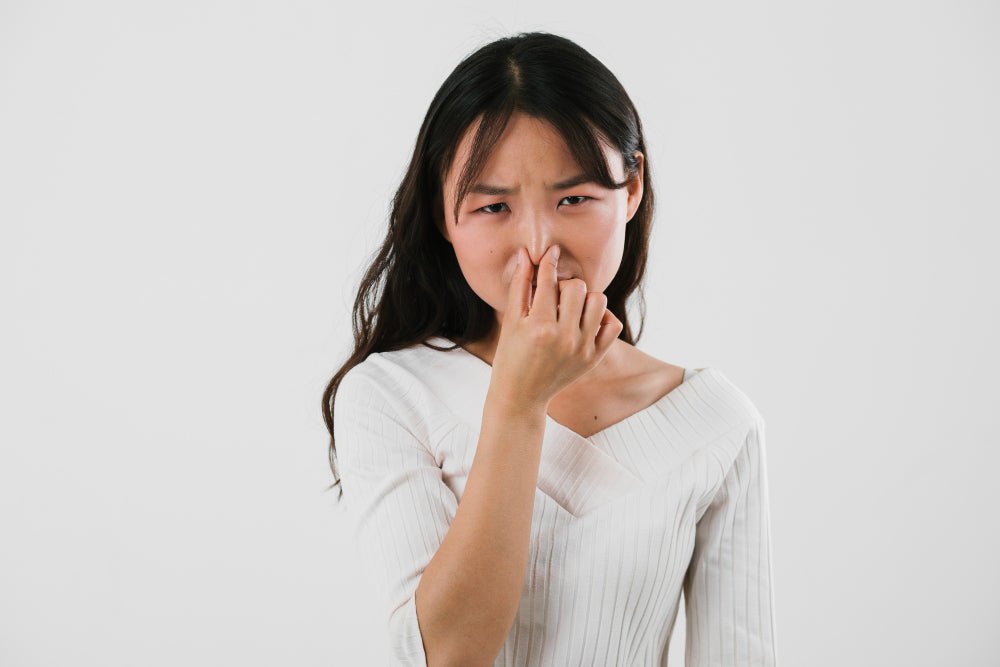Prevention and Treatment of Bad Breath: A Comprehensive Guide

Prevention and Treatment of Bad Breath: A Comprehensive Guide - Enzim Singapore
Bad breath, or halitosis, can be a significant social and emotional burden. While it can stem from various causes, understanding the underlying factors and implementing effective preventive measures can help alleviate this issue. This article delves into the causes, prevention strategies, and treatment options for bad breath.
Understanding the Causes of Bad Breath
Bad breath can originate from several sources within the oral cavity:
-
Oral Hygiene:
-
Poor Oral Hygiene: Inadequate brushing and flossing can lead to plaque and bacteria buildup, which produce foul-smelling compounds.
-
Food Particles: Food particles trapped between teeth can decompose, causing bad breath.
-
Poor Oral Hygiene: Inadequate brushing and flossing can lead to plaque and bacteria buildup, which produce foul-smelling compounds.
-
Dry Mouth:
-
Reduced saliva flow can lead to a dry mouth, which creates an ideal environment for bacteria to thrive.
- Certain medications, medical conditions, and lifestyle habits can contribute to dry mouth.
-
Reduced saliva flow can lead to a dry mouth, which creates an ideal environment for bacteria to thrive.
-
Gum Disease:
-
Periodontal disease, an infection of the gums and bone supporting the teeth, can cause bad breath.
-
Periodontal disease, an infection of the gums and bone supporting the teeth, can cause bad breath.
-
Medical Conditions:
-
Certain medical conditions, such as sinus infections, respiratory tract infections, or digestive disorders, can contribute to bad breath.
-
Certain medical conditions, such as sinus infections, respiratory tract infections, or digestive disorders, can contribute to bad breath.
-
Certain Foods:
- Strong-smelling foods like garlic, onions, and spicy dishes can temporarily cause bad breath.
Preventive Measures for Bad Breath
-
Practice Good Oral Hygiene:
-
Brush your teeth at least twice a day with fluoride toothpaste.
-
Floss daily to remove food particles and plaque from between teeth.
- Use a tongue scraper to remove bacteria from the tongue's surface.
-
Consider using a mouthwash to kill bacteria and freshen your breath.
-
Brush your teeth at least twice a day with fluoride toothpaste.
-
Stay Hydrated:
-
Drink plenty of water throughout the day to keep your mouth moist.
-
Drink plenty of water throughout the day to keep your mouth moist.
-
Limit Odor-Causing Foods:
-
Reduce consumption of strong-smelling foods like garlic, onions, and spicy dishes, especially before social events.
-
Reduce consumption of strong-smelling foods like garlic, onions, and spicy dishes, especially before social events.
-
Visit Your Dentist Regularly:
-
Schedule regular dental check-ups and cleanings to remove plaque and tartar buildup.
-
Schedule regular dental check-ups and cleanings to remove plaque and tartar buildup.
-
Address Dry Mouth:
-
If you experience dry mouth, consult your dentist or doctor to determine the underlying cause and discuss potential treatments.
-
If you experience dry mouth, consult your dentist or doctor to determine the underlying cause and discuss potential treatments.
Treatment Options for Bad Breath
If preventive measures fail to alleviate bad breath, consider these treatment options:
-
Professional Dental Cleaning:
-
A dental cleaning can remove plaque and tartar buildup contributing to bad breath.
-
A dental cleaning can remove plaque and tartar buildup contributing to bad breath.
-
Antimicrobial Mouthwash:
-
A mouthwash with antimicrobial properties can help kill bacteria and reduce bad breath.
-
A mouthwash with antimicrobial properties can help kill bacteria and reduce bad breath.
-
Prescription Medications:
-
Sometimes, your dentist or doctor may prescribe medications to address underlying medical conditions or infections.
-
Sometimes, your dentist or doctor may prescribe medications to address underlying medical conditions or infections.
-
Lifestyle Modifications:
-
Quitting smoking and reducing alcohol consumption can improve oral health and reduce bad breath.
-
Quitting smoking and reducing alcohol consumption can improve oral health and reduce bad breath.
By understanding the causes and implementing effective preventive measures, you can significantly reduce the occurrence of bad breath and maintain a fresh and confident smile. If bad breath persists, consult a dental professional for a comprehensive evaluation and personalized treatment plan.
